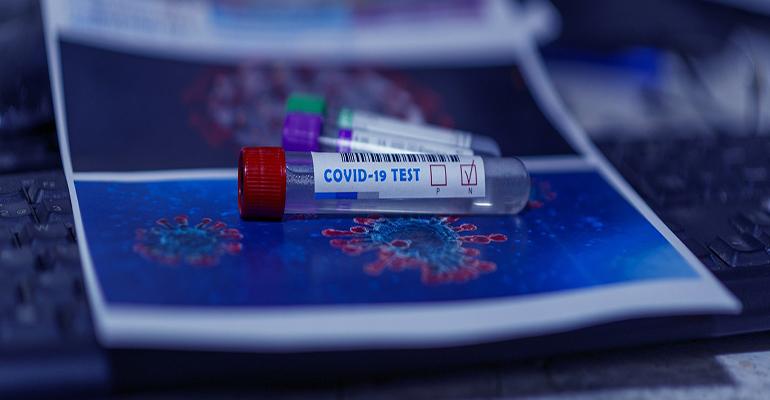Researchers from the University of Birmingham have confirmed the speed, accuracy and simplicity of a novel, a highly sensitive testing method for COVID-19 that can be used at entertainment venues, airport arrival terminals, and in remote settings where clinical testing laboratories are not available.
A study published today in PNAS journal confirmed that the Exponential Amplification Reaction (EXPAR) method is just as sensitive, but faster, than both PCR and LAMP tests, which are currently used in hospital settings. Currently, the RT-PCR (Reverse Transcription Polymerase Chain Reaction) test is considered a standard for diagnosing COVID-19 in the UAE.
Two-step process
The Birmingham COVID-19 test, called RTF-EXPAR, gives a sample-to-signal time of under 10 minutes, even for low viral levels where current lateral flow tests are less effective.
Professors Tim Dafforn from the School of Biosciences, and Jim Tucker from the School of Chemistry, worked with graduate student Jake Carter, and Professor Andrew Beggs from the Institute of Cancer and Genomic Sciences on the study.
Both PCR and LAMP tests detect viral RNA, which can be present in extremely low levels in swabs taken from the mouth and nose. These tests use a two-step process that involves first converting to RNA to DNA and then ‘amplifying’ the material many times over so it can be detected in the sample.
Professor Tim Dafforn said: “Both these steps slow down existing COVID assays and are based on nucleic acid detection, compared to antigen tests, such as lateral flow, which do not have these steps. However, while this makes lateral flow tests faster than those based on PCR and LAMP, in return they are typically less sensitive. An ideal test would be one that is both sufficiently sensitive and speedy – our test, called RTF-EXPAR, achieves this goal.”
RTF-EXPAR achieves this feat in two ways – firstly the assay team designed a new RNA-to-DNA conversion step that avoids reverse transcription, making it reverse transcription-free (RTF). Secondly, their amplification step to generate the read-out signal uses Exponential Amplification Reaction (EXPAR), an alternative DNA amplification process to PCR and LAMP.
The study revealed that the RTF-EXPAR method converts under 10 strands of RNA into billions of copies of DNA in under 10 minutes, using a one-pot assay that is compatible with more basic, benchtop equipment than that used with current testing methods.
The assay has been tested at the Surgical Research Laboratory at the University of Birmingham. Professor Andrew Beggs, whose team conducted the testing, commented: “The testing used swabs containing a typical range of viral loads seen during the pandemic, had a six-minute cut-off time. The analysis showed RTF-EXPAR’s sensitivity is equivalent to quantitative PCR testing. We expect to publish the full results of this testing in the near future.”
The team is now seeking commercial partners for rapid licensing, to make the RTF-EXPAR test as available as widely as possible.
References available on request

